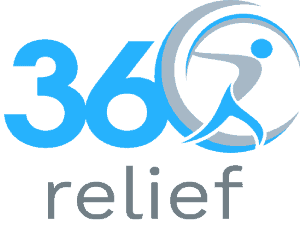Having an operation is never an easy time. Often, it is the operation recovery time, post-surgery, that can be the most frustrating to handle. You may have been in pain for a long time before undergoing a surgical procedure.. So, you are now very keen to recover from surgery, get back out there and get on with life. Unfortunately, the most important thing you will have to learn here is patience. Your body needs time to heal and you will need to look after yourself correctly to ensure a complete recovery depending on the types of surgery.
That said, however, if you were generally fit and healthy before the surgery, there is no reason why you can’t aim for full recovery from surgery now that your issue has, hopefully, been fixed. The secret is in the planning. Knowing how to recover from surgery will remove much of the guess work and give you solid goals to work towards. Especially if you have had more than one procedure in quick succession.
The other main ingredient you need for effective post-op care is patience. It might seem odd, but the more patient you are and the more determined to allow yourself time to recover from surgery properly, the quicker you will find yourself back up on your feet. This is because trying to return to normal life too quickly could cause post-op complications, drain energy or increase post-op pain. Understanding and managing Pain after surgery is very normal and it can be managed by following a few tips and pieces of advice.
Plans To Recover From Surgery
- Be prepared. Have a basket, tray or cupboard close to your bed with things you may need frequently. These could include prescribed medication or painkillers for pain medication, tissues and your mobile phone. This is to stop you having to move about unnecessarily to find the things that you need.
- Invest in good quality injury support devices. These could include compression stockings or socks, braces and other joint support aids. Your healthcare team can advise on what you need to buy. Or they may be able to provide some things for you.
- To promote healing, make sure you eat and drink well for a healthy immune system. Follow the advice given to you by the medical team who oversaw your operation. You may not feel hungry, but it is important to eat and drink to stay fit enough to allow your body to heal.
- Try eating little and often, choosing snacks that are easy to prepare and healthy. Chopped up fruit and vegetables or soups can work well for this purpose. If you have difficulty swallowing afterwards, you can get specially fortified drinks and pureed foods. Ask your post-op care team about this.
- Drink plenty of water, around 1.6 litres per day. You can also choose from herbal teas, juices and other teas if you prefer to maintain the blood pressure and remain healthy. If you are worried about needing the loo at night, reduce the amount you drink later on in the day.
- Try to move around as much as you can or are allowed to instead of lying in bed. This is to stimulate your muscles, breathing and circulation. It can also help prevent DVTs, skin problems or bed sores. To recover from surgery faster, you may require physiotherapy to help with moving safely.
- If you were very sporty before your operation, ask for medical advice about resuming sports. You may need to return to previous levels of activity in stages in order to protect your incision and help manage pain during recovery.Again, wearing a joint support device when you start back training would be a sensible precaution that helps to recover from surgery quickly.
- Make sure you understand what your medication is for, when to take it, how long for and in what dosages and the side effects. Work out how to get replacements when the supplies given to you after your operation run out if you need to.
- Check (gently) your incision area to make sure the healing process is going properly. Always wash your hands before touching the area. Alert your post-op care team of any issues. This can help any infections that may be present to be spotted and treated quickly. Physical therapy can also be a great help to recover from surgery quickly.
- Take care when coughing, sneezing or moving quickly. This is because sudden movements can cause stitches to tear. Press a pillow against the incision area before you cough or sneeze to help protect it.
- Listen to your body. If you feel tired, rest. When you feel like you could attempt to move about, do so, but stop if it becomes too painful otherwise it takes longer to recover from surgery. Should you need to tell visitors to go home, do so. Sometimes, the effort of talking to people can make you feel tired too.
- To recover from surgery, always follow your operation recovery team’s advice. Attend all follow-up appointments, even if you are feeling better. It could be that you can gain good advice on longer-term operation recovery care and better injury support aids to use.
Always consult your operation recovery team if you have any concerns about your recuperation.


















